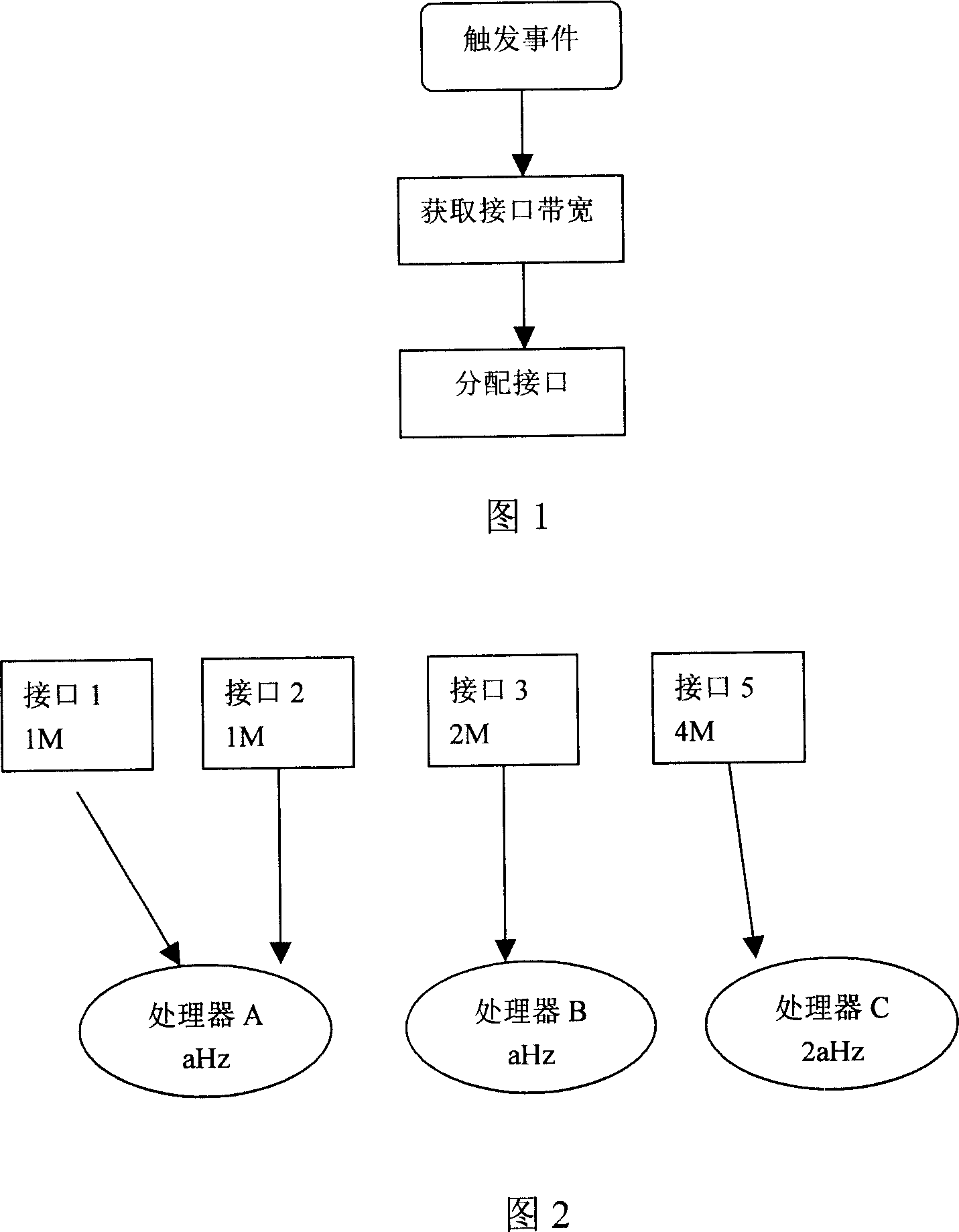Multi-processor load distribution-regulation method
A load distribution, multi-processor technology, applied in the field of data communication, can solve the problems of increased system software design difficulty, waste of processor performance, low use efficiency, etc., to achieve simple and efficient calculation of collection bandwidth and grouping, and improve system reliability. Sex, avoid the effect of uneven busy and busy
- Summary
- Abstract
- Description
- Claims
- Application Information
AI Technical Summary
Problems solved by technology
Method used
Image
Examples
Embodiment 1
[0016] Embodiment 1: see Fig. 2.
[0017] The bandwidths of interfaces 1, 2, 3, and 4 of the system are 1M, 1M, 2M, and 4M respectively;
[0018] The operating frequencies of processors A, B, and C are aHz, aHz, and 2aHz, respectively;
[0019] When the system is initialized, the allocation program of the present invention is triggered, that is, interfaces are allocated to processors A, B, and C in a ratio of 1:1:2.
[0020] The "equivalent" mentioned herein should not be interpreted as strict equality, and differences recognized in the technical field are allowed, that is, "approximately equivalent". This is obvious to those of ordinary skill.
PUM
 Login to View More
Login to View More Abstract
Description
Claims
Application Information
 Login to View More
Login to View More - R&D
- Intellectual Property
- Life Sciences
- Materials
- Tech Scout
- Unparalleled Data Quality
- Higher Quality Content
- 60% Fewer Hallucinations
Browse by: Latest US Patents, China's latest patents, Technical Efficacy Thesaurus, Application Domain, Technology Topic, Popular Technical Reports.
© 2025 PatSnap. All rights reserved.Legal|Privacy policy|Modern Slavery Act Transparency Statement|Sitemap|About US| Contact US: help@patsnap.com

